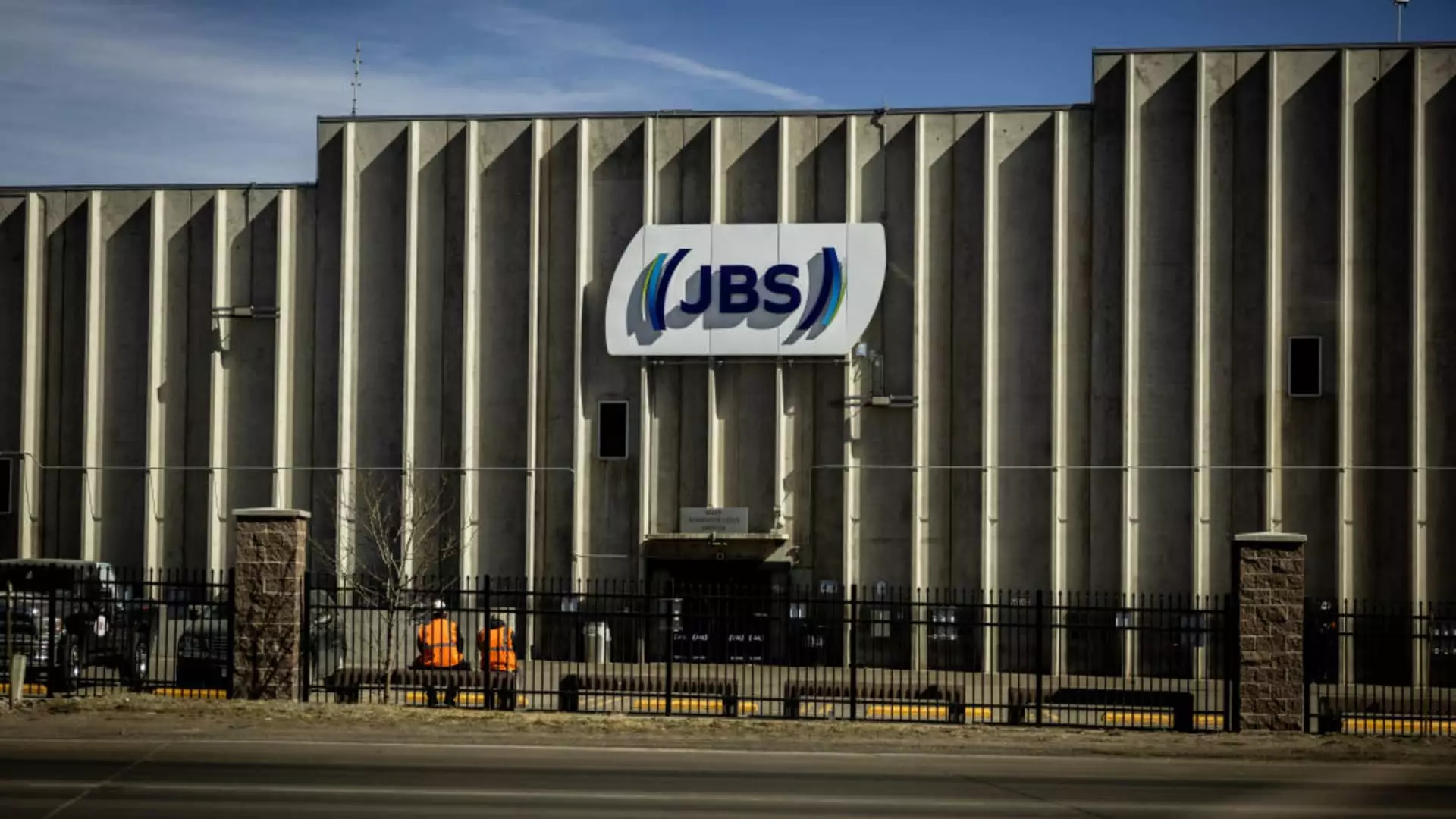The debut of Brazilian meat conglomerate JBS on the New York Stock Exchange has raised more than just eyebrows; it has sown deep concern among stakeholders and consumers alike. Launching its shares at $13.65, valuing the company at approximately $30 billion, JBS has eclipsed the market capitalization of U.S. rival Tyson Foods by nearly $10 billion. Yet behind this monumental figure lies a history marked with scandal, corruption, and questionable ethics, which beg a critical examination of what the consequences of such a public listing might entail, particularly for stakeholders invested in corporate responsibility.
Behind the Gleaming Facade
Since its establishment over 70 years ago, JBS ascended to the throne of the world’s largest meatpacking entity, reporting mind-boggling revenues of $77.2 billion last year. However, the company bears a tainted legacy that cannot be ignored. Its checkered past, riddled with corruption scandals—including bribery charges that led to a staggering $3.2 billion fine—sets a precarious precedent for its new role in the U.S. market. While the Batistas, the family that controls JBS, evaded prison by cooperating with authorities, the ethical implications of their actions linger, threatening the company’s credibility at a time when consumer trust is at an all-time high demand.
Impact of Controversial Practices
The recent actions by JBS have also raised alarm bells in terms of environmental and social responsibility. Just last month, the Brazilian government slapped JBS with a fine for purchasing cattle raised in protected areas of the Amazon rainforest. As global citizens become increasingly engaged in corporate ethics, one cannot help but question whether the U.S. stock market is enabling a company that has repeatedly demonstrated a disregard for environmental laws and ethical business practices.
This concern is compounded by the fact that the meat industry itself has come under scrutiny for its environmental impact, ranging from deforestation to carbon emissions. Thus, JBS’s listing in such an environment could be perceived as an endorsement of harmful practices rather than an opportunity for positive change. The question arises: Is the market truly ready to embrace a corporation with such blatant ethical failings, and what implications does this have for both investors and consumers?
The Political Web
Consider the political dimensions of JBS’s rise in the U.S. marketplace. The company’s significant donations to political campaigns, especially its $5 million contribution to President Donald Trump’s inauguration committee, further complicate its public image. While JBS purports to have “long bipartisan history participating in the civic process,” these actions showcase an uneasy intertwining of corporate interests with governmental machinations. Such relationships can skew regulatory oversight, allowing a company with a dubious past to navigate the complicated waters of U.S. finance unscathed.
This does not merely represent a failure of regulatory institutions; it is a symptom of a broader issue where corporate influence can outweigh accountability. Lawmakers across the political spectrum have voiced their concerns regarding JBS’s U.S. listing; yet, the SEC still granted approval. This swift regulatory sanction raises serious questions about the integrity of the review process and whether it favors profit over principled governance.
Investing in Ethical Alternatives
Amidst this turbulent landscape, the case of JBS compels investors to exercise greater scrutiny. Consumers and stakeholders who prioritize ethical operations have alternative avenues available to them. Beyond seeking transparency, supporting companies that adhere to humane practices can not only engender meaningful change within the industry but also align investments with personal values. The market can be a powerful tool for influence, and when consumer sentiment shifts, companies must respond.
JBS’s entrance into the U.S. market may very well be a wake-up call for advocates of ethical investing. As consumers become more informed and demand higher ethical standards, we may witness a shift in the marketplace that prioritizes sustainable and equitable business practices over sheer profitability. In this ecosystem, the flaws of corporate titans like JBS should not merely be overlooked in the pursuit of financial gain but actively challenged in favor of creating a more responsible industry for future generations.

